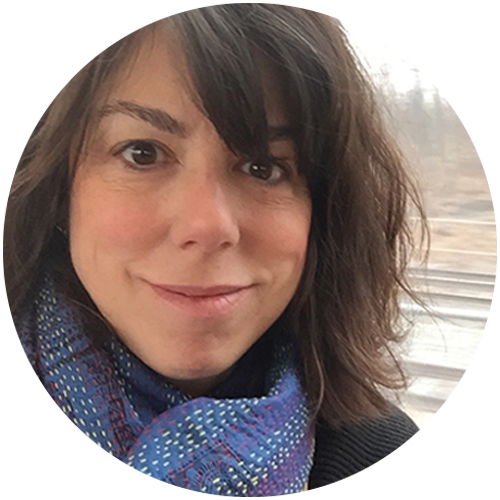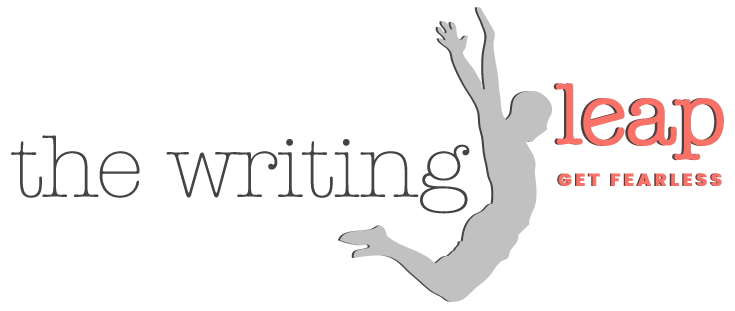On Abandon, Too
I wanted to be a witch. I wanted to make potions and live in a world of Faerie or possibly in a dense forest of gigantic trees. I would sleep in a bed of moss.
Yet in my witches club, I anointed myself president and had so many rules, I ended up playing by myself or coming together with my friends not to make potions and enchant the sky, but to make my little sister drink mud. To make it believable, I didn’t conjure a glass or craft a cup from an acorn, I swiped a glass from the kitchen and told her it was chocolate milk.
“Freewriting is an art unto itself; it’s where hidden stories nest in our psyche. The very act is a pledge of abandon, a surrender to any idea your mind might gift you.”
As artists, the first thing you learn is to trust that abandon.
My first freewrite was in a writing class with Thea Sullivan. She was athletic and blond and confident. All things I was not. She had made the leap to writing from a straight career I no longer remember. We sat around a table at San Francisco’s Fort Mason, an art haven I’d often walk around, fantasizing that one day I would occupy a small writing studio there. I would hear the fog horns and smell the saltiness of the Bay. I’d walk over the hill each day to my studio and feel so artistic.
Thea told us to write about whatever came to our minds and to not let our pens leave the paper. Sure. Now, I know what to do. To open my mind and let a momentary fixation or stray thought take hold and then flow ink onto the page.
But what sank in were the rules of the process: (1) Write whatever came to mind; and (2) Don’t lift pen from page.
I obeyed. I didn’t lift up my pen. I looked around and measured myself against the other students who hesitated, wrote a sentence, hesitated, wrote another sentence. A-ha! I said to myself, I am doing it right. The rules, obeying the rules.
Had Thea even mentioned rules? No. She had never once used the word even though I heard it, obey or else.
So not lifting my pen, I really wrote whatever came to my mind. I remember the yellow legal pad I took to the class. I had yet to allow myself to buy a moleskin or a flower-covered journal.
I don’t remember exactly what I wrote, but it went something like this:
I am writing, I am writing, I see that other people next to me are hesitating. Just write. My hand hurts. I don’t want a callus on my finger. The man next to me is breathing though his mouth. Is he going for grunge or wearing his father’s flannel shirt? It’s hot in here. I am still writing, writing. This isn’t hard at all. When did hard and difficult become synonyms? I don’t know. Writing. Writing.
I volunteered to read first. I thought I had done well! I hadn’t lifted my pen—see, look at the ink stains on my left hand! They all stared at me blankly. Thea smiled and said thank you. I beamed.
Then others read. Oh the dawning of wisdom comes swift, hard, and painfully. I was so embarrassed as I heard rhythm, beats, and glimpses of stories to be explored.
•
The brain of the literal. The brain of the rigid. The brain of a rule follower. The brain of the girl who wanted her father to admire her more than he did.
•
In the fifth grade, Mr. Shitelman –yes, we played with that name a lot— told us to find an item. It could be anything, he said. We were to write a paper describing it without naming it. We would read our description to the class and have the class guess what the item was.
My rigidity intervened. I interpreted it as a game where the “win” would be that the class couldn’t guess what it was.
First, I took special care in choosing the item: a green plastic car pulled from an Apple Jacks box. But it was broken—a mere wheel and axle was all that was left. No one would ever guess this, I thought!
I wrote in my bubbly left-handed cursive. I filled half a ruled notebook page. I stood up in class: in front of Andrew and Jeff, the two boys I loved, in front of my best friend Sara, in front of Michael, the smartest boy in English, and all the people I played kickball with at recess. I read my description. My mouth formed the words I had so carefully practiced in the mirror. The room was quiet and I began to sense boredom. The blank faces of my peers. Orating that last sentence was only a whisper. Of course, of course, the goal of the assignment was not to obscure, but to describe something so well, the entire class would recognize the item. I murmured a thank you and sat down, red and ashamed.
*
It was after Thea’s writing class that I decided to rewire my brain. I did it with all the rigidity I could muster! I looked at everything anew. I looked at my childhood habit of drawing a line straight down the middle of the page so the horizon would allow for equal parts green and blue so no color’s feelings would be hurt. In those days, I made my sister call her favorite color red so it wouldn’t feel alone. I didn’t seem to give a whit about yellow. Throughout my childhood, I painted ceramics—I’d go after school to my mother’s workplace and participate in the art programs. At the beginning of class, we’d choose a figurine to paint—I always chose a dog or a horse. And I always painted them brown. Black was too dark. White was too boring. Sometimes when I was feeling creative, I gave them blue eyes. I was always done first for the other children painted their figurines in pinks and blues and purple with red polka dots. I watched them mix colors and would look at my own brown animals and imagined them playing in the grass. I loved my realistic menagerie of animals.
*
So many rules.
You have to wear all gold jewelry or all silver jewelry.
You have to be “going out” with a boy eight months before you could lose your virginity.
You can’t get a tattoo until you’ve had the same idea for a year.
You can’t have a gap in your resume.
You have to finish every book you start.
You have to go out every Saturday night.
You have to eat breakfast food for breakfast and dinner food at dinner.
You have to decorate your apartment so guests feel welcome.
You have to be single or married, you can’t just be.
If you are vegetarian, you can’t lapse and eat bacon.
You have to be original.
You have to conform.
*
And so my de-education began. I stopped doing crosswords in my particular order. I took an art class and refused to cling to directions. I gloried in confusion. I mixed colors with abandon, often coming home with an abstract that looked like Pepto-Bismol making its way through the gut. I stopped hesitating in my planner that I had always wanted to look neat—I liberally crossed things out. My journal began to look like a rumination on days and not a neatly written archive of events. Ideas percolated.
I emptied my entire apartment of anything that didn’t give me joy—and this was 1995—well before Kondo-ing became a verb. I dragged my IKEA furniture down the stairs of my apartment building and left the bookcases and wall-unit on the sidewalk. I purged a couch, my television, and a set of plates I bought because they were new and on trend. They all went to the sidewalk, and they were all taken by someone who saw themselves in those items.
My apartment was bare: an armchair, a rug, a small table. Books stacked prettily on the floor. My parents worried I suffered from depression. But I was free.
*
I have two ceramics left from my childhood. They sit in my studio where I write and paint. A dog curled upon his water bowl: he is painted brown with yellow eyes. His dog bowl is red. I marvel at my precision. A frog with his mouth wide open—a place for sponges and Brillo-pads. He is painted fire-engine red. He’s shiny. A fly alights on his nose—light blue with yellow dots. I don’t remember choosing this frog or deciding to paint him red and not green. (It wasn’t because I knew frogs could be red.) I like to think it was a witchy moment when I saw into my future and painted as myself.



